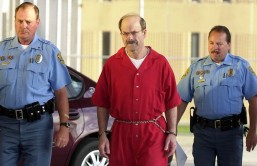The United Nations announced an investigation into the deaths of 40 Muslims who were killed during a sectarian clash with Myanmar Buddhists, the Associated Press reported.
An incident in the village Du Char Yar Tan in Northern Rakhine where a buddhist mob is believed to have entered and killed men, women and children is the deadliest attack in a year and has brought the death toll to 280 and consisting of mostly Muslim deaths, according to the AP.
According to reports, Rohingya Muslim residents abducted and killed a police sergeant, and because they were worried about retaliation, most men fled leaving women and children behind, the AP reported. When the revenge-seeking buddhist arrived at the village, police did nothing to stop them from attacking those left behind with knives, guns and machetes.
Myanmar is a nation of 60 million people and is mostly Buddhist, the AP reported. About 250,000 people have left their homes since the sectarian violence began in 2012.
Though the U.N. presented evidence of the massacre during a meeting with the U.S. embassy and other officials, the Myanmar government denied the massacre and Presidential spokesman Ye Htut said the information was "totally wrong," the AP reported.
The area where the majority of the country's 1 million Muslim Rohingya live sits along the Bay of Bengal and is separated from the rest of the country by a mountain range, according to the AP. Journalist and humanitarian aid workers are not allowed to enter the area.
The AP reported evidence of the massacre a week ago and the executive director of the independent Thailand-based human rights group Fortify Rights has also reported more than 40 Muslims being killed by the buddhist the day they stormed the village.
Matthew Smith, the executive director of Fortify Rights, said he had spoke to witnesses and local people who say they saw the killings and a U.N. team also traveled to the village last week, the AP reported.
Valerie Amos, one of the U.N. officials who visited the scene, only said there were "alarming levels of violence, including the killings of many civilians and a policeman," according to the AP.
During a U.N. briefing on Thursday, officials said the estimated 40 dead was a "conservative" number after a thorough investigation including witness testimony and descriptions of the violence were reported, the AP reported.
Few bodies were found where the massacre occurred, but that is because officials believe local authority disposed of the bodies. U.N. officials remained confident the massacre did occur was of a "large scale," according to the AP.
Smith has now asked the government to allow journalist and humanitarian workers to be allowed in the restricted area, which has also been emptied and sealed-off since the massacre, the AP reported. Police were also arresting any male Rohingya Muslim over the age of 10 in the village and nearby areas shortly after the attack.
Smith also said bodies could still be seen in abandoned homes and other evidence of the violence that occurred can still be gathered, according to the AP.
"These arbitrary detentions broaden the scope of the human rights violations in the area and should be immediately brought to an end," Smith said, the AP reported. "There needs to be accountability for this wave of horrific violence ... but mass arrests of Muslim men and boys are not the way."
The Myanmar government is still denying any violence took place in the area except for the death of the sergeant, the AP reported.








